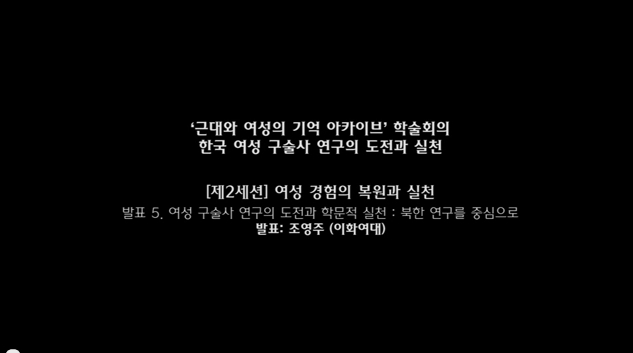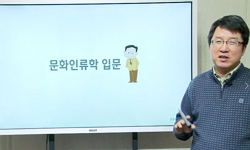This article attempts to trace and reconstruct Korean women’s experiences and their memories of deportation to Uzbekistan. It argues that by considering of intersection of nation/ethnicity and gender, it needs to approach to multi-facet and multi-cu...
http://chineseinput.net/에서 pinyin(병음)방식으로 중국어를 변환할 수 있습니다.
변환된 중국어를 복사하여 사용하시면 됩니다.
- 中文 을 입력하시려면 zhongwen을 입력하시고 space를누르시면됩니다.
- 北京 을 입력하시려면 beijing을 입력하시고 space를 누르시면 됩니다.
https://www.riss.kr/link?id=A60135369
- 저자
- 발행기관
- 학술지명
- 권호사항
-
발행연도
2011
-
작성언어
Korean
- 주제어
-
등재정보
KCI우수등재
-
자료형태
학술저널
-
수록면
61-91(31쪽)
- 제공처
- 소장기관
-
0
상세조회 -
0
다운로드
부가정보
다국어 초록 (Multilingual Abstract)
This article attempts to trace and reconstruct Korean women’s experiences and their memories of deportation to Uzbekistan. It argues that by considering of intersection of nation/ethnicity and gender, it needs to approach to multi-facet and multi-cultural identity of Korean women in Central Asia. In this article, I conducted research to support this argument in two ways, doing in-depth interviews with Korean women survivors and descendants in Uzbekistan from micro (individual experiences and historical memory) level, as well as analyzing official documents from the macro (Soviet national policy, and migration policy) level. The women did not quietly submit to their husbands or their male authority, but tried to settle in a new deportation place by envisioning various strategies. Soviet policies such as passport and ‘propiska’ for resettlement and laws for family policy, public education affected differently between man and woman. Partly, settling in new place was suffering but this gave woman more chances. Women who are interviewed only referred positive memories and they denied exposing their negative memories. This shows the historical memories about deportation under Stalin period are partially distorted, omitted and embellished.
목차 (Table of Contents)
- Ⅰ. 들어가는 글
- Ⅱ. 소련의 이주정책과 민족정책
- Ⅲ. 행위자로서의 경험과 여성의 목소리
- Ⅳ. 정착과 이주의 기억
- Ⅴ. 나오는 글
- Ⅰ. 들어가는 글
- Ⅱ. 소련의 이주정책과 민족정책
- Ⅲ. 행위자로서의 경험과 여성의 목소리
- Ⅳ. 정착과 이주의 기억
- Ⅴ. 나오는 글
- [참고문헌]
- [Abstract]
동일학술지(권/호) 다른 논문
-
- 역사학회
- 박진빈(Park Jin-Bin)
- 2011
- KCI우수등재
-
- 역사학회
- 정재정(chung Jae-Jeong)
- 2011
- KCI우수등재
-
- 역사학회
- 정희라(Chung Hee-Ra)
- 2011
- KCI우수등재
-
- 역사학회
- 박은경(Park Eun-Kyung)
- 2011
- KCI우수등재





 ScienceON
ScienceON DBpia
DBpia






